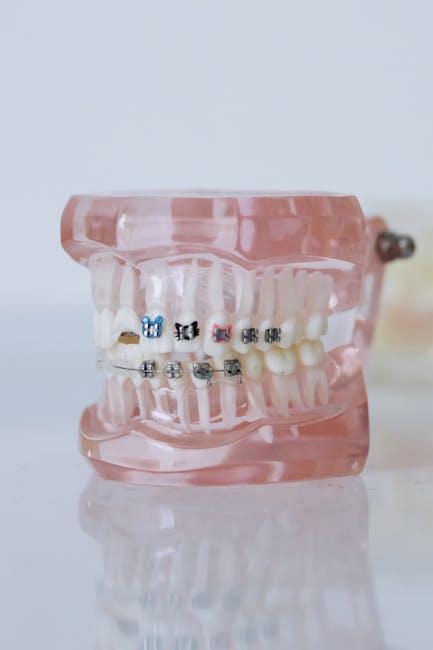
Families Say Access to Dental Care Can Improve Quality of Life – Rett Syndrome News
For families affected by Rett Syndrome, a rare neurological disorder primarily affecting females, maintaining dental health poses unique challenges. Access to specialized dental care not only supports oral hygiene but also significantly enhances overall quality of life. In this article, we explore the impact of dental care on individuals with Rett Syndrome, sharing families’ perspectives, practical tips, and expert insights.
Understanding Rett Syndrome and Oral Health Challenges
Rett Syndrome is characterized by a progressive loss of motor skills and communication difficulties. Individuals may face challenges such as:
- Difficulty with swallowing and jaw control
- Bruxism (teeth grinding)
- Increased risk of dental decay and gum disease due to limited oral hygiene capabilities
- Oral motor dysfunction leading to saliva buildup and infections
These factors make regular, specialized dental care crucial to preventing complications and improving comfort for individuals living with Rett Syndrome.
Why Access to Dental Care Matters
Families often share that when their loved ones gain access to skilled dental professionals, there are notable improvements in:
- Oral pain management, reducing discomfort during daily activities
- Better eating habits facilitated by healthier teeth and gums
- Improved communication and social interaction due to increased comfort
- Reduction in infections and secondary health issues
One mother stated, “Since my daughter started receiving regular dental care, her mood and eating have improved dramatically. The access to care truly changed our day-to-day life.”
Benefits of Specialized Dental Care for Rett Syndrome
Specialized dental teams understand the neurological and physical nuances specific to Rett Syndrome. The benefits include:
- Tailored Treatment Plans: Customized approaches accommodate communication difficulties and physical limitations.
- Preventive Care Focus: Strategies to prevent decay and gum disease before they worsen.
- Calm and Supportive Environment: Gentle handling to reduce anxiety and sensory overload.
- Interdisciplinary Cooperation: Collaboration with neurologists and therapists to optimize oral and overall health.
Practical Tips for Families Managing Dental Health
Here are some key strategies to help families support oral health in individuals with Rett Syndrome:
- Establish a Consistent Routine: Brushing teeth twice daily with soft-bristled brushes designed for sensitive gums.
- Use Adaptive Devices: Specialty toothbrushes or mouth props can assist those with limited motor skills.
- Maintain Regular Dental Visits: Find dentists experienced with neurological disorders for specialized care.
- Monitor for Signs of Discomfort: Changes in eating, drooling, or irritability can signal dental pain.
- Coordinate with Healthcare Providers: Ensure dental treatments align with overall medical care plans.
Case Study: Improving Quality of Life Through Dental Care
Emily’s Story
Emily, a 10-year-old with Rett Syndrome, had significant difficulties with feeding and persistent oral infections. After her family connected with a pediatric dentist specialized in neurological disorders, Emily’s treatment included regular cleanings, management of bruxism with a custom mouthguard, and instructional sessions for caregivers on oral hygiene. Within six months, Emily experienced:
- Reduction in oral infections and pain
- Increased enjoyment of meals
- Greater comfort engaging in social settings
Her mother shared, “Access to the right dental care has been a game-changer for Emily’s wellbeing. It complemented her therapy and brought a new sense of comfort to her daily life.”
Dental Care Access Comparison for Rett Syndrome Patients
| Access Level | Common Challenges | Quality of Life Impact |
|---|---|---|
| Limited Access | Infrequent visits, lack of specialized care | Increased discomfort, infections, worsened oral health |
| Moderate Access | General dentistry, occasional specialized treatment | Improved oral health, but ongoing challenges remain |
| Full Access | Consistent, specialized multidisciplinary care | Better comfort, nutrition, social engagement, and overall wellbeing |
Resources for Families Seeking Dental Care for Rett Syndrome
Finding specialized dental care may require extra effort. Families can explore:
- Rett Syndrome Research Trust – provides support and resources
- Special Care Dentistry Association – directory of dentists specializing in special needs
- Local children’s hospitals or university dental programs offering specialized care
- Support groups and forums where families share dental care experiences and recommendations
Conclusion: Prioritizing Dental Care to Enhance Lives with Rett Syndrome
Access to comprehensive, specialized dental care plays a vital role in improving the quality of life for individuals with Rett Syndrome. From pain management to fostering better nutrition and social interaction, the positive effects resonate through multiple facets of daily living. Families emphasize that advocating for consistent dental support and integrating oral health into overall care plans is fundamental to nurturing wellbeing and comfort.
By raising awareness, sharing experiences, and utilizing available resources, caregivers can secure better smiles and healthier futures for those living with Rett Syndrome.


